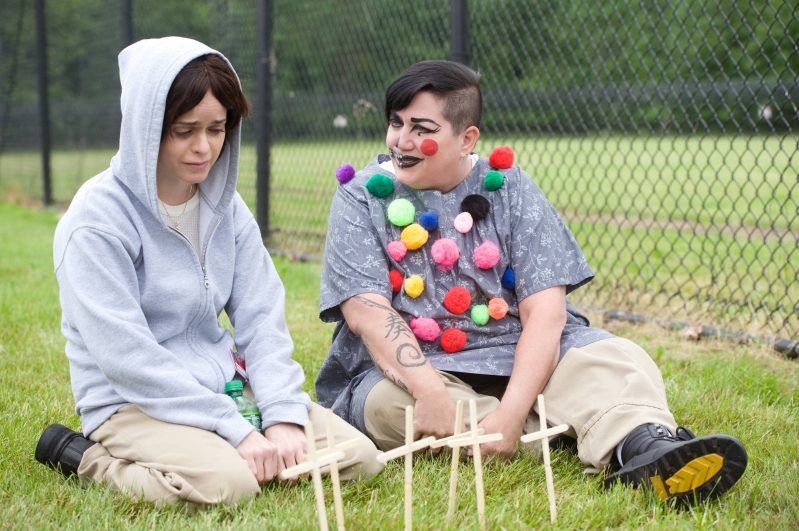
Netflix's successful drama set in a women's prison, "Orange Is The New Black," starts its fourth season, still introducing audiences to the themes of women's religious practice, community and identity.
The issues faced by the Orange Is The New Black women transcend the fictional prison complex, remaining relevant in contemporary real life, said Jo Henderson-Merrygold, PhD Candidate in Biblical Studies and Queer Theory, University of Sheffield.
Henderson-Merrygold said explicit exploration of belief and religion was a major theme of the last season, and she expects that to continue.
Orange Is The New Black is inspired by Piper Kerman's autobiographical account of her 13-month stint for drugs trafficking and money laundering. Set in the fictional Litchfield Penitentiary, the show tackles difficult topics through the lives of both prison inmates and staff.
Religion and spirituality are found everywhere on the show, stated Henderson-Merrygold on raw story. Examples of these explorations happen in the prison kitchen, where Latina women conduct prayers and spells learned from foremothers; in the laundry, where a white group practice their own form of charismatic evangelical Christianity; and in the gym, where the Alcoholics or Narcotics Anonymous groups intertwine meditation and yoga.
The more obviously religious space of the chapel rarely gains such use. Instead, it is a battleground between inmates and authorities, a space for breaking down barriers, said Henderson-Merrygold.
Last season, Roman Catholic nun Sister Jane Ingalls (Beth Fowler) convinced a Rabbi she was Jewish to keep kosher meals. Although more interested in selling her book and gaining publicity than religious teaching and authority within the prison community, Sister Ingalls is the go-to person on all things religious.
Tiffany "Pennsatucky" Doggett (Taryn Manning) is a self-appointed leader inspired by the religious communities who have funded and claimed her as a prophetic figure since she shot her abortionist. Right-wing religious, anti-abortion campaigners publicly celebrate and validate Pennsatucky because of her crime. She is martyr for their cause, and they provide her with an excuse. Religious indoctrination allows Pennsatucky to rewrite her own history, said Henderson-Merrygold.
A shunned Amish inmate, Leanne Taylor (Emma Myles), establishes fellow prisoner Norma Romano (Annie Golden) - a former member of a 1960s New Religious Movement - as a religious figure who grants miracles in Litchfield. Leanne bullies other inmates into following her rules, declaring herself to be the true interpreter of Norma-ism. In her need to belong to a religious group, she attempts to recreate what she misses from her Amish tradition. She is lost without her religiom, said Henderson-Merrygold.
Religion underpins identity in Litchfield penitentiary. "Whether beliefs are accepted or rejected, religion remains inseparable from the sex and drugs, abuse and manipulation, power and identity in the lives of each individual and group," said Henderson-Merrygold.
"Orange Is The New Black puts religion under the microscope and allows us to peek into the religious lives of others. What makes the show so provocative and valuable is that it shows the outreaching impact of religion across society."
Orange Is The New Black encourages viewers to question how to understand identity and community in light of religion, believes Henderson-Merrygold. "You can guarantee the religion present in season four will confront, challenge and defy expectation, just as the earlier seasons have. But will we embrace that diversity in wider society?" she asks.







